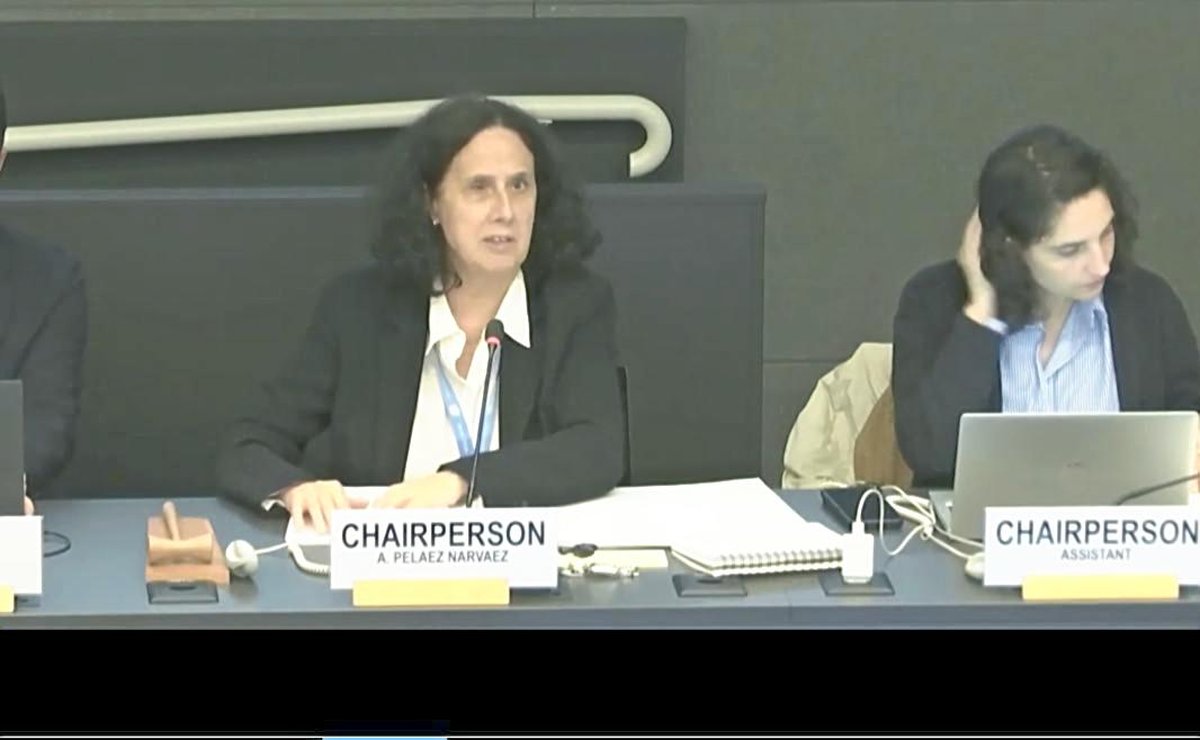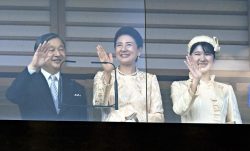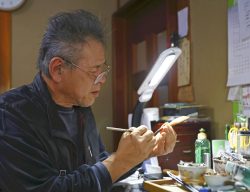U.N. Panel’s Stance on Imperial Succession Refuted; Experts Question Motives, Lack of Transparency

The U.N. Office in Geneva, where a U.N. committee examined Japan’s efforts to address discrimination against women
1:00 JST, November 23, 2024
GENEVA/NEW YORK — The reverberations from a U.N. committee’s recommendation that the Japanese government amend the Imperial House Law show no sign of abating.
The recommendation by the Committee on the Elimination of Discrimination against Women showed a clear lack of understanding about Japan’s Imperial system, and the government is concerned that this could spread the misperception that the law entails discrimination against women. There is a growing view, both in Japan and overseas, that bias and other problems blight the way the United Nations deals with human rights issues.
At a press conference held after a Cabinet meeting Tuesday, Foreign Minister Takeshi Iwaya expressed his displeasure at the committee’s report that recommended the law be amended.
“It is not appropriate for the committee to raise this issue in relation to the Imperial House Law,” Iwaya said. “We will continue to request the deletion of the recommendation.” Iwaya added that the committee raising this issue was “unacceptable for Japan.”
In its report issued on Oct. 29, the committee recommended the law, which stipulates the Chrysanthemum Throne shall be “succeeded to by a male offspring in the male line belonging to the Imperial Lineage,” be amended to “guarantee equality of women and men in the succession to the throne.”
The committee did not accept Japanese government requests to have the reference to the law deleted. This refusal continues to rankle many government officials.

The committee during its meeting
On Oct. 17, the committee held a meeting at the U.N. Office in Geneva to consider the report on Japan’s situation regarding efforts to tackle discrimination against women. When a committee member asked about the possibility of amending the Imperial House Law, a representative of the Japanese delegation replied that succession to the throne was a “matter related to the foundation of the state” and that it was “not appropriate” for the committee to raise the issue.
However, the committee side did not budge from its position that it had a mandate to raise questions on “any aspects related to the issue of equal women’s rights.”
The committee spent a day discussing and examining issues including allowing married couples to choose to use different surnames, but this was the only exchange on the Imperial House Law.
Inclusion predetermined?
Before issuing recommendations, the committee sends questions to the governments of its member nations on the status of efforts to implement the Convention on the Elimination of All Forms of Discrimination against Women. In addition to answers submitted by the government, the committee receives opinions and other information from nongovernmental organizations and other entities in various fields. The committee then conducts in-person meetings to examine the issues raised, before compiling and issuing its recommendations.
A committee member from Nepal played a central role in examining Japan’s situation. Japanese private organizations also submitted opinion papers that claimed the Imperial House Law discriminated against women. However, there has been no announcement of what discussions took place internally, and it remains unclear to what extent the committee took Japan’s history and traditions into account when compiling its latest recommendation.
The committee also attempted to include a recommendation to change this law in the previous report in 2016. However, the Japanese government objected and the issue was ultimately deleted from the final draft.
“I got the impression that including that issue in the latest recommendation was partly predetermined,” a government source said.
Article 1 of Japan’s Constitution stipulates that the Emperor shall be the symbol “of the unity of the people,” and he derives his position “from the will of the people.” The government’s position is that eligibility for succession to the throne is not a fundamental human right, so the limitation of eligibility to male offspring in the male line “does not constitute discrimination against women.”
“Succession to the throne through male offspring in the male line is a tradition of our nation’s Imperial household,” said Akira Momochi, a professor emeritus at Kokushikan University and an expert on the Imperial household system and constitutional law. “It’s a mistake to link this to gender equality and women’s human rights. This interference by an international institution is intolerable.”
The committee was established in 1982 based on the convention, which the U.N. General Assembly adopted in 1979. Composed of 23 lawyers and human rights experts, the organization monitors implementation of the convention. A Spanish woman currently chairs the committee. Asia University Prof. Hiroko Akizuki is a committee member, but she did not participate in the latest review of Japan.
‘Bias’ in activities
Dealing with human rights issues is a major pillar of U.N. activities. The committee’s recommendations are not legally binding, but content that is not based on facts also could become widely accepted in the international community as the “perception of the United Nations.”
In 1996, the U.N. Human Rights Commission (now the U.N. Human Rights Council) adopted the Coomaraswamy Report that erroneously claimed comfort women were “sex slaves” who had been forcibly taken away by the former Japanese military. The Japanese government’s position was that documents indicating the women had been taken against their will could not be found, and it was forced to engage in efforts to widely share a correct historical understanding.
The Heritage Foundation, a U.S. think tank, has issued a report that suggested there was “bias” in the council’s activities and called for the entity to be reformed.
“It is possible that the United Nations is being manipulated by foreign countries and groups championing specific assertions,” a Foreign Ministry source told The Yomiuri Shimbun.
A review of Japan’s situation is conducted every few years. If the current situation remains as it is, a similar recommendation on the Imperial House Law could be brought up in the next review.
Money’s influence
Some observers have said that the neutrality and fairness of decisions and operations of U.N. bodies has been compromised in some cases. U.N. funding relies on voluntary contributions that individual member states make at their own discretion, rather than on assessed contributions determined by factors such as the size of a nation’s economy. Consequently, U.N. activities could possibly reflect the wishes of China and the United States, which provide significant voluntary contributions.
In 2015, UNESCO added documents relating to the 1937 Nanjing Incident, which China submitted as “Documents of Nanjing Massacre,” to its Memory of the World register. These documents included inflated victim numbers far beyond the reality of what happened. Some observers have suggested China’s increased voluntary contributions to UNESCO and its dispatch of high-ranking officials to top posts influenced the decision to register these documents.
Top Articles in Society
-

Producer Behind Pop Group XG Arrested for Cocaine Possession
-

Man Infected with Measles Reportedly Dined at Restaurant in Tokyo Station
-

Woman with Measles Visited Hospital in Tokyo Multiple Times Before Being Diagnosed with Disease
-

Bus Carrying 40 Passengers Catches Fire on Chuo Expressway; All Evacuate Safely
-

Tokyo Skytree’s Elevator Stops, Trapping 20 People; All Rescued (Update 1)
JN ACCESS RANKING
-

Producer Behind Pop Group XG Arrested for Cocaine Possession
-

Japan PM Takaichi’s Cabinet Resigns en Masse
-

Man Infected with Measles Reportedly Dined at Restaurant in Tokyo Station
-

Israeli Ambassador to Japan Speaks about Japan’s Role in the Reconstruction of Gaza
-

Videos Plagiarized, Reposted with False Subtitles Claiming ‘Ryukyu Belongs to China’; Anti-China False Information Also Posted in Japan


























